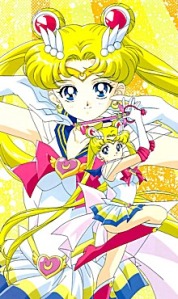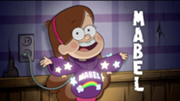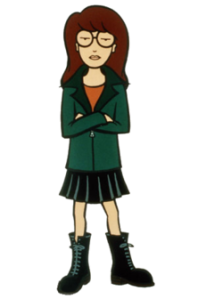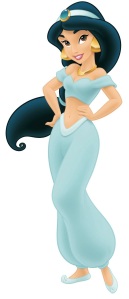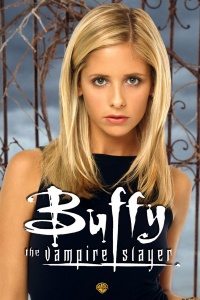I grew up with some pretty cool fictional ladies in my media. Though they were far outnumbered by vapid, two-dimensional background girls, we’ve been blessed by quite a few gems. This is my list of the top five awesome fictional ladies.
5) Usagi Tsukino/ Serena Tsukin, Sailor Moon
If you watched Sailor Moon without the scenes in which Serena became Sailor Moon and was a total badass, you would’ve never guessed she could be someone who saved the world. She was a hungry, whiny crybaby who spent all of her time playing video games, reading manga or sleeping and didn’t do very well in school (note: this is me. All of this is me.)
- (Look how cute she is, too!)
As Sailor Moon, Serena was a leader- she was strong, and she could kick ass- but that didn’t mean she had to be a leader all the time. She wasn’t always put together and her life wasn’t planned out, but she was still incredible when she was needed.
Mabel might not look very threatening, but she’s smart and silly and she’s able to figure her way through the mysteries she comes across with her twin brother because of her eccentric personality, not despite it. Mabel is so infectiously loyal, positive, and loving, it’s hard to end an episode without a huge smile.
3) Daria Morgendorffer, Daria
Daria Morgendorffer is everything I wish I could be. She’s tough, she’s sarcastic, and she just doesn’t care. Her fuck-it-all attitude is so refreshing not only because it’s not a quality we usually see in fictional girls, but because it’s in the protagonist. She wasn’t a weird side character who had one-liners for the audience to laugh at, she was the normal one surrounded by bland and one-dimensional secondary characters who usually weren’t very smart.
Sure, Daria was a social outcast, but she didn’t care, and that made her cool.
2) Princess Jasmine, Aladdin
Now I know what you must be thinking. A princess? How shocking!
Jasmine means a lot to me as a Moroccan woman. When I was growing up, there was no one on TV or in any movies- animated or not- who looked like me. If there was, it was always some background character. The only people I could kind of identify with Jewish characters who were white as snow and shared no cultural background with me- and Princess Jasmine.
Jasmine was smart, independent, and didn’t care what people thought of her. She wasn’t afraid to break the rules and explore. Most importantly though, she was the first princess of color. There was finally a princess that girls who look like me could look up to and identify with. To this day, she’s my favorite princess, and though I know there’s a lot about the Disney company that is problematic, having representation for all little girls of color is so important. Little girls of color need to know that their existence, their being smart and active agents in their own lives, is important. We need more (though non-sexualized) characters like Jasmine.
1) Buffy Summers, Buffy The Vampire Slayer
Buffy Summers is the Strong Female Character, and it has nothing to do with the fact that she hunts vampires. Sure, she kills baddies better than anyone ever could (your fave could not compete- don’t even try.) and her skills are way beyond any normal teenage girl, but the best part about Buffy is that she’s still that; a teenage girl. She has real teenage issues (besides for the whole soulless boyfriend, though I wouldn’t have complained about having one of those in high school), she’s a real, complete person with a full set of emotions and reactions that are completely realistic. She isn’t strong 100% of the time. That’s the thing that male writers, and let’s not kid ourselves, the majority of the writers in Hollywood and both white and male, like to conveniently forget: women are people. You aren’t doing your character any favors by writing them based on half-assed stereotypes. Buffy breaks the mould because she wears cute clothes but can still kick your ass.
